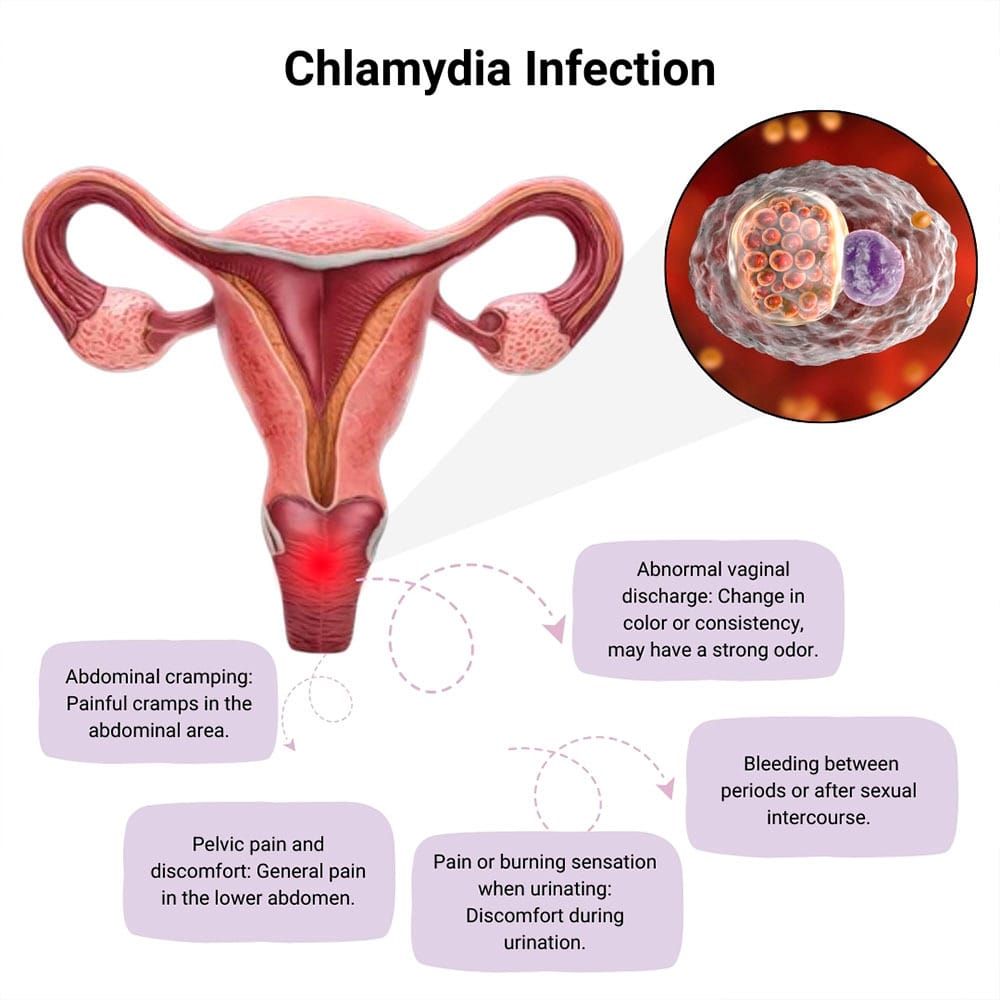What Is Chlamydia?
Chlamydia is a bacterial infection caused by bacteria known as chlamydia trachomatis. It’s a common sexually transmitted disease (STD) that affects millions of people each year. It’s dangerous in the sense that many people get infected and live with chlamydia without treatment. While it’s quickly treatable, going untreated or not following the treatment leads to more complex health issues, including infertility.
Cohen Medical Practice (CMP) in Midtown New York offers treatment for chlamydia and other feminine problems. This feminine health and gynecological surgery clinic offers comprehensive solutions backed by the most advanced medical technologies today. Dr. Felix Cohen and his team have the personalized treatment plans you need for both simple and complex feminine health and gynecological problems.

Can I Have Chlamydia and Not Know It?
It’s common for women to get infected with chlamydia and not show any symptoms, and in many people, the symptoms appear several weeks after infection. It’s also common to mistake mild symptoms for something else. Some people don’t exhibit any symptoms of the infection. Regular screening for STDs is recommended if you’re sexually active.
The time for symptoms to appear varies but it’s typically from one to three weeks after infection. You usually experience an abnormal vaginal discharge or abnormal bleeding.
Other symptoms include:
- Pain and/or burning sensation when urinating
- Pelvic pain and discomfort
- Abdominal cramping and pain
- Itching in the genital area
- Strong smell from the discharge
How Do I Confirm if I Have Chlamydia?
Diagnostic tests are the surest way of confirming if you have a chlamydia infection because symptoms can be mild or absent. That’s why it’s recommendable to have regular screening by your gynecologists, especially if you’re sexually active and have multiple partners.
Early detection is the best way to reduce the risk of more complex complications and infecting your partner.
The CMP doctors in New York offer several clinical tests for chlamydia diagnosis, including:
- Urine test to check for the presence of chlamydia bacteria in the urine
- Swab test to collect cells from the vagina and cervix to check for bacteria in these cells
- Blood test to check whether there are chlamydia antibodies in the blood
How Quickly Can Chlamydia Affect My Health?
Untreated chlamydia progresses to other parts of the body in a relatively short period. It causes damage to a woman’s reproductive health by spreading to the cervix, uterus, fallopian tubes and the ovaries.
Some of the conditions that might develop in the short term include inflammation of the cervix called cervicitis, and inflammation of the urethra. You risk developing pelvic inflammatory disease, which causes scarring and makes it hard to conceive.
Other complex problems that develop in addition to infertility include:
- Ectopic pregnancy
- Chronic pelvic pain
- Higher risk of cervical cancer
- Higher risk of contracting HIV
What Are Effective Treatments for Chlamydia?
Antibiotic drugs are the typical and most effective way of treating chlamydia. These drugs kill the bacteria and curb its spread. Azithromycin and doxycycline are some of the most powerful antibiotics for this treatment. However, effectiveness depends on completing the dose to ensure the infection clears completely.
It’s also highly recommended that your sexual partner gets screened and treated to avoid re-infection. Your CMP doctor prescribes a treatment plan after reviewing the severity of the infection and your overall health.
They have the latest antibiotics for this treatment, including:
- Azithromycin. A single dose may be all that’s needed if the infection isn’t widespread; or you may receive a five-day course of treatment for serious infection.
- Doxycycline. This is a seven-day course of treatment.
- Levofloxacin. This seven-day course of treatment that’s an alternative option if you’re allergic to azithromycin or doxycycline.
- Erythromycin. This seven-day course of treatment is usually the safer option for pregnant women.
How Can I Lower the Risk of a Chlamydia Infection?
You should observe safe sex practices and receive regular sexually transmitted infection screening if you’re sexually active. It’s also helpful to adopt open communication with your sexual partners. This includes discussing STD test status and history, especially when starting a sexual relationship.
If you’re tested positive for chlamydia, ensure your partner also screens for the infection and completes the treatment if positive.
Some of the useful tips your CMP New York team offers to lower the risks include:
- Consistent and correct condom use
- Sexually transmitted infections screening if you haven’t been practicing safe sex
- Choosing partners who have been tested and are willing to test together for openness
- Avoiding multiple sexual relations
CMP New York is a premier feminine health and gynecological solutions provider. They have helped thousands of women regain control of their reproductive and sexual health. There, you have the latest medical technology and facilities to handle both simple and complex conditions. Don’t wait. Call Cohen Medical Practice (CMP) today to schedule an appointment as a first step toward restoring your health.

